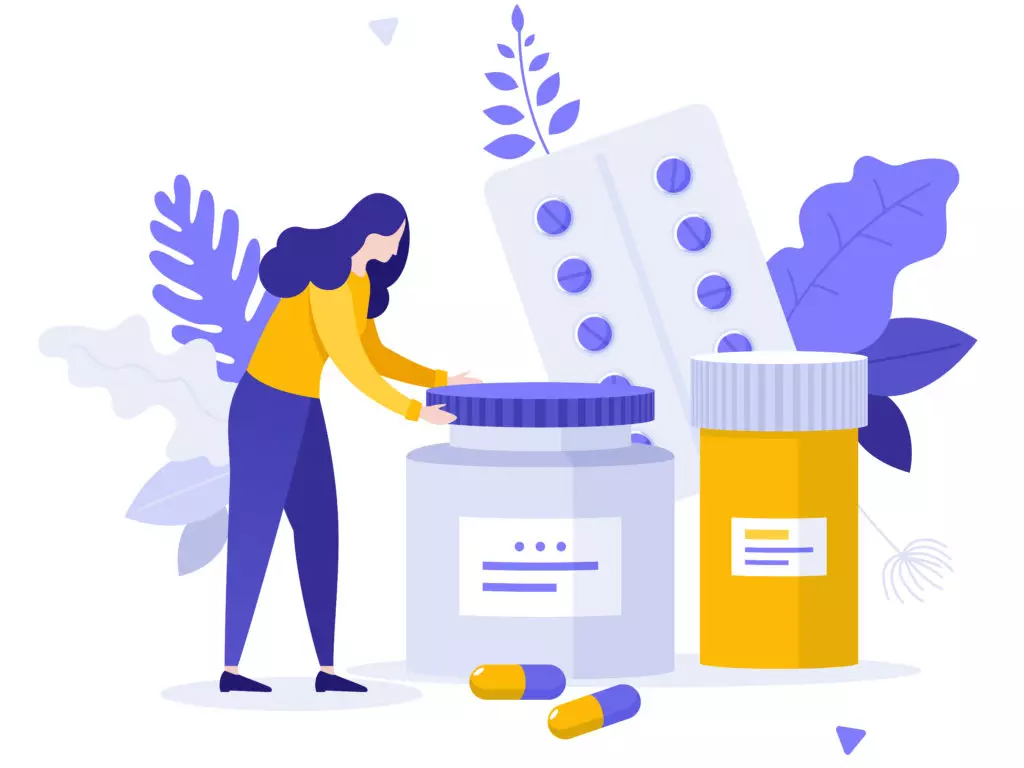
Shutterstock.com
The health service is currently coping with disruption to medicines supply, with depleted stock or discontinued versions of in-demand medicine putting incredible pressure on pharmacy teams to source alternative versions for patients.
As two cancer ‘thrivers’, as we call ourselves, in the years since we were first diagnosed with breast cancer, we have both had first-hand experience of being faced with switching brands. Medicines shortages are not just stressful for pharmacists, but also for those who are reliant on stable long-term medicines. We thought we would share our personal reflections on the impact that supply issues can have on those who are prescribed these treatments.
We hope that sharing our experience may help pharmacy teams better understand some of the considerations to make when sourcing different brands of medicines.
The adverse effects from tamoxifen are common in the early days of treatment. We were both advised by breast care professionals to stick to one generic brand of the drug as some patients experience different side effects with different brands. Our logical brains immediately rejected this advice; surely every brand is the same formulation and bioequivalence? Otherwise, each particular generic brand would not have marketing authorisation from the Medicines and Healthcare products Regulatory Agency, which requires generics to be produced to the same standards of quality and efficacy as the patented product. One of our experiences, however, is that after trying several different brands of tamoxifen over a period of around a year, fewer and less severe side effects were experienced with one particular generic brand. The other one of us has only used one brand but, owing to concerns expressed across the cancer community, has real anxiety at the prospect of switching brands.
One of us had a local community pharmacist who knew of someone who, on taking a parallel import of HRT rather than a UK brand, experienced vaginal bleeding, a physiological symptom as opposed to a less easy-to-measure, psychological impact. It appears to be the nature of hormone treatments to have different impacts on different women’s bodies (perhaps as evidenced by the wide range of different oral contraceptives on the market) — surely there was nothing to lose in sticking to one brand when each of our experiences had been largely positive? So, we have both become very attached to a particular brand.
Fortunately, in both of our cases, our community pharmacies were willing to dispense our preferred brand against the generic prescription, documenting this in our patient medication record, as well as ensuring one of us had access to 10mg tablets when 20mg tablets were unavailable. This support continued during lockdown, when all pharmacies were under unprecedented pressures during the COVID-19 pandemic.
We are far from alone in our experiences. Discussions with the wider cancer community pointed to numerous case reports of a similar experience in many different patients taking both tamoxifen and aromatase inhibitors. There appears to be no logic to the brand that suits an individual patient — patients experience fewer and less severe side effects with a wide variety of brands, but switching brands appears to increase side effects for many women and can cause significant distress and anxiety.
Worryingly, many patients — or ‘thrivers’ like us — face having to switch brand or dosage, and surely one of us is not unique in counting down the few rows of tablets left and considering stopping tamoxifen altogether rather than switching brands. Quality of life versus an unknown risk of cancer returning is a difficult one for anybody to decide, even without trying other brands.
There is no scientific evidence to support this phenomenon of differing responses to different generic brands, despite it being well known across the breast cancer community. Surely this is worthy of future research?
Our plea to pharmacy teams is to not dismiss the fears and anxiety expressed by patients if their preferred brand is unavailable. Acknowledge that, although there is no robust scientific evidence to support the phenomenon of different responses to different brands, there are a wide number of reports across the cancer community.
We would also support the Royal Pharmaceutical Society’s (RPS’s) call for even greater flexibility for pharmacists to make changes to prescriptions if there are shortages.
Both of us are several years past cancer diagnosis and met recently at the RPS and through our use of the term cancer ‘thriver’ on our Twitter biographies (@ruthedwards101 and @MeMyselfandAve). If you are interested in why we use this terminology, you can contact either of us to discuss this further.
Ruth Edwards is professor of pharmacy education and head of school at School of Pharmacy, University of Wolverhampton, and a member of the Royal Pharmaceutical Society (RPS) Assembly. Avril Chester is chief technology officer at the RPS.
4 comments
You must be logged in to post a comment.



Really interesting! Have had several patients in my community pharmacy who have had issues with certain generic brands of tamoxifen, more than with most other drugs. Definitely worth someone researching properly.
Thank you for your comment, Lorna! Thankfully team of us have been successful in securing funding to research this further. Watch this space!
as a profession we can be very dismissive when patients tell us about these side effects. this is a good challenge from people within the profession that this is a lived experience and should be investigated further. do we need to change our testing protocols?
Thank you for your comment, Alison! I agree, but did not realise the impact until I was a patient. Thankfully a team of us have been successful in securing funding to research this further. Watch this space!